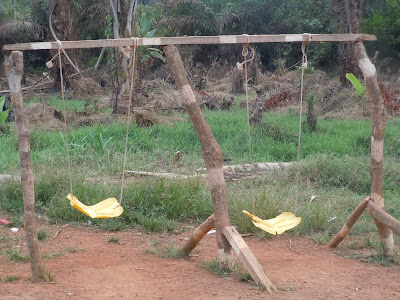At the 6th Annual Exhibition of Institutions hosted by the National
Council for Higher Education ARCC was asked to present a paper on "The
Role of Universities in Advancing National Cohesion and Integration."
The following is a portion of the paper presented by Jeff Atherstone,
the Director of ARCC, on the role of values in education for advancing
national cohesion and integration.
VALUES WORK TOGETHER
You will
notice at this point that there is a degree of overlap in our values. The
scholarship students are required to work 10 hours per week on campus
(accountability) and also students and staff work together on Friday mornings
(community) and the majority of their projects take place on our school farm
(stewardship). Just as values must be established and implanted into our character
they must also work well together and not conflict with one another.
You cannot
have competing values such as community and individualism, extravagance and
stewardship or irresponsibility and accountability. Values must work hand in
hand to achieve the intended results that we are aiming for.
Values must
work hand in had with the vision of the school. If the vision can be seen as
the foundation of the building, then values would be seen as the pillars, which
cause everything else to stand. You will remember that the vision of our
Institution is to “equip Christian leaders for transformation of society.” Our
values are the pillars that we believe will bring about transformation:
accountability addressing corruption, stewardship addressing poverty and
community to bring unity to diverse groups of people.
There are
many lectures that I have forgotten over the course of my lifetime but whenever
I need information I know where to find it. Values are not something that you can find when you run up against
a problem in life. Values are implanted deep within your character and will
reveal themselves when the storms of life hit you the hardest.
When I was
in secondary school I had a coach who taught us the value of perseverance.
Everyday he would shout from the sidelines of the field “quitting is a habit!”
And every day he would give us an opportunity to practice perseverance. He
would start practice by giving us a goal such as “run for 30 minutes straight.”
I will never forget the day that one of my teammates stopped running at 29
minutes. My coach called us all over and told us that one of us had quit so we
would all pay the price. We all had to start the run over again, a full 30
minutes. But this time we also had to pull the others along who fell behind. Not
one of my teammates quit that run. We wouldn’t let them. And still to this day
every time I am tempted to quit early I can hear my coach shouting, “Quitting
is a habit!” And believe me, I
don’t want to start that run over again from the beginning.
YOUR VALUES ARE YOUR STUDENT’S FUTURE
So how do we
measure the success of our “values-driven education?”
Each week
when our staff comes together we measure our success. For a shoe salesman he
would measure his sales in number of shoes sold. For a restaurant they could
measure their success in number of costumers served. At ARCC we measure our
success in number of lives that have been transformed. Every staff meeting a
member of staff will volunteer to give the testimony of a student’s life that
they have seen changed. In order for this to happen you realize that the staff
actually have to know the students and interact with them.
Specifically
we ask the staff to demonstrate how the students have been transformed by the
values of the school. Two weeks ago a staff member shared the testimony of a
student from Lira. School fees have been a problem for this young man in the
past but this term he cam and paid his fees in full. The staff member took the
time to listen to the young mans story and find out what had changed.
This student
was assigned to work on our farm the previous term as part of our Scholarship
Program. In working on the farm he was taught stewardship, specifically the
farming practices of composting and proper spacing of plants. When he returned
home he realized that he had not been properly caring for his land and his
garden of sunflowers was not profitable. So he dug up his sunflowers and
replaced them with peppers. Modeling the practices that he had learned at ARCC
about stewardship. By the time the field produced he had more than enough to
cater for his school fees and tuition.
To borrow an
old analogy, lecture tells students about fishing but values give our students
the skills to fish. As Universities we need to take advantage of this golden
opportunity to impact the next generation of leaders for Uganda by imparting in
them the values that will bring about true transformation for our nation.
Imparting knowledge does not ensure that our students will use that knowledge
for the good of their fellow man but imparting values will direct our students
to effectively use the knowledge they attain at University for the good of
their fellow man and the development of this nation.






